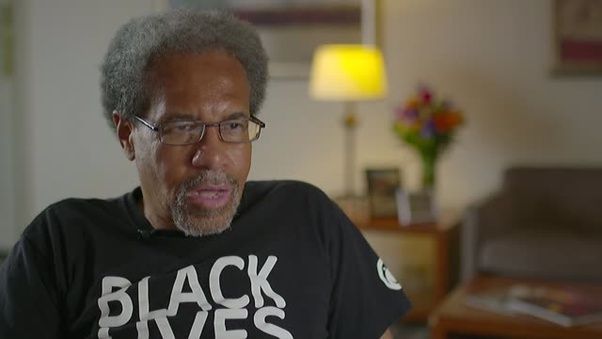EDITED AND HOSTED BY THE GREANVILLE POST

(Professional dabbler, lives in Australia)
He was imprisoned for a crime he maintains he didn't commit and despite his conviction being overturned four times. He was accused of stabbing a prison guard to death, yet there was much evidence supporting his innocence. In those four decades, he was confined to a cell only 2.7 by 1.8 meters up to 23 hours a day.
In 1971, at the age of 22, he was involved in an armed robbery while on parole. He was convicted and sentenced to 50 years in the Louisiana State Penitentiary, nicknamed "Angola" - a reference to the origin of many of the slaves brought to Louisiana (didn't anyone think this was excessive? Pretty much a life sentence for an armed robbery?)
He escaped to Harlem in New York City where he came into contact with the Black Panther Party. The teachings of the Black Panther Party gave him a new moral meaning and mission. He began to learn about African-American history and the justice system.
He was later recaptured and returned to Angola, where he and fellow inmates formed a Black Panther Party chapter in prison, later called the Angola 3.
A New York Times article ‘Solitary’ Is an Uncommonly Powerful Memoir About Four Decades in Confinement about his autobiography mentions:
The “legacy of slavery” was everywhere at Angola, he writes. When he arrived it was segregated. White prisoners mostly worked indoors while the black prisoners worked the fields, often cutting sugar cane under the supervision of guards with shotguns.
The prison had a rape culture. The day new inmates arrived was called “fresh fish day,” and sexual predators lined up to view the goods. “If you were raped at Angola, or what was called ‘turned out,’ your life in prison was virtually over,” he writes.
They began organising education for other inmates, petitions and hunger strikes to protest against the horrendously brutal conditions in prison, segregation, and institutional racism. Their activism wasn't welcome, among guards and prisoners alike, and often met with violent beatings.
In 1972, when a prison guard was stabbed to death, prison authorities wanted to pin it on the Black Panthers troublemakers. A sham trial commenced, and they were found guilty and sentenced to life in solitary.
Amazingly, in his four decades confinement, he refused to let anger, despair and resentment destroy him alive and used his time to gain an education, learning civil and criminal law. He kept fighting against his conviction, which was overturned then reinstated several times. Eventually the cause of the Angola 3 was taken up by human rights activists, legal teams and celebrities and real progress was made. Even the widow of the murdered prison guard became an ardent supporter of the Angola 3's freedom.
In 2015, the state of Louisiana announced it would try Woodfox for murder a third time but, after months of negotiation with his lawyers, offered a plea deal. While Woodfox still wanted to prove his innocence, he also missed his family, the children and grandchildren he had never held and whose whole lives he had missed. He was released in 2016 and to this day, he insisted that it was a plea for freedom, not a plea for guilt.
His survival and unbroken spirit was a feat of extraordinary strength. Today he is saddened that after four decades of his prison sentence, in the outside world, not much has changed for the Black people of America. He uses his liberty to campaign against the inhumane practice of solitary confinement, to which currently about 80,000 people, including children, are subjected in the US. His harrowing memoir is a dire indictment of the justice system that tolerates such cruel torture. While some people have a thirst for retribution, I don't see what else solitary confinement can achieve apart from driving prisoners insane and hardening them. How would such a system ever aim to reform a person, except in extraordinary cases such as Albert Woodfox's?
Speaking of his extreme isolation and loneliness in those years, Woodfox said:
“Don’t give up…For 44 years I defied the state of Louisiana and the Department of Corrections. Their main objective was to break my spirit. They did not break me…I did not lose my humanity. I bear the scars of beatings, loneliness, isolation and persecution. I am also marked by every kindness.”
References:
Angola Three - Wikipedia
Angry but not broken: How Albert Woodfox survived four decades in solitary confinement
Summary review of SOLITARY by Albert Woodfox
Albert Woodfox On Serving More Than 40 Years In Solitary Confinement
For 45 Years in Prison, Louisiana Man Kept Calm and Held Fast to Hope

This work is licensed under a Creative Commons Attribution-NonCommercial 4.0 International License





